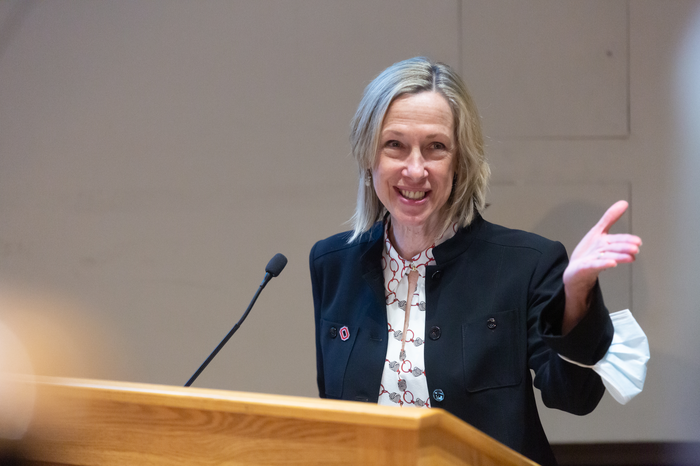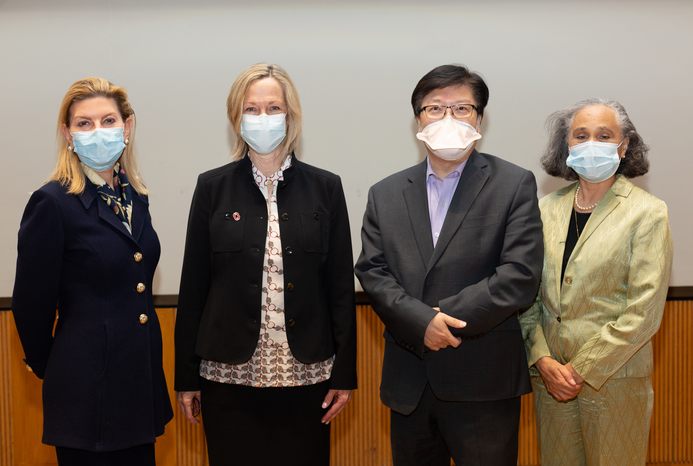Focus on your top priorities, build a community of support around you and empower others to also succeed, said Dr. Carol R. Bradford, dean of The Ohio State University College of Medicine, in her keynote address on April 27 for Weill Cornell Medicine’s fourth annual Diversity Week.
“Our careers can be challenging but they’re worth it,” said Dr. Bradford, a respected otolaryngologist specializing in head and neck cancer surgery who also serves as the vice president for health sciences at The Ohio State University Wexaner Medical Center. “Remember every day that you are making a difference and leaving a legacy.”
Dr. Bradford’s lecture, “Shattering the Glass Ceiling: Advance Your Career Without Limits,” was part of a series of events to mark Diversity Week, which celebrates Weill Cornell Medicine’s commitment to greater equity, diversity, and inclusion in academic medicine and health care.
In remarks to introduce Dr. Bradford, Dr. Augustine M.K. Choi, the Stephen and Suzanne Weiss Dean of Weill Cornell Medicine, emphasized the importance of gender equity. He noted that more than half of Weill Cornell Medicine’s medical students are women, but women make up less than half the faculty.

Dr. Carol Bradford delivers a keynote address April 28 during the fourth annual Diversity Week at Weill Cornell Medicine.
“In the spirit of this week, we want to celebrate our accomplishments and know we still have work to do going forward,” Dr. Choi said.
One of the few women head and neck surgeons when she began her career 30 years ago, Dr. Bradford shared key lessons from her experiences as both a professional and a mother of two.
“If you spend all day answering every email promptly, you never have time for the big things,” she said. “What you really need to do is to focus on what really matters. Family and professional priorities and then fit everything else in around it.”
For Dr. Bradford, following her “true north,” as she called it, has meant carving out time for her children and her interests outside of medicine, such as running and tennis. To do so, she acknowledged that women need a strong support system of family, friends, role models and mentors.
“No individual is an island,” she said. “My second piece of advice is to build your village. There are moments and days you need that support of community.”
And when women achieve success, they should reach out and lift those behind them.
“It’s critically important to foster the success of others,” she said. “To hire, mentor, and sponsor people of color and members of historically marginalized communities.”
For example, all the departments in Ohio State’s College of Medicine have a vice chair for diversity. Faculty search teams also include a diversity champion and receive bias training.
In joining together to make progress within academic medical institutions, leaders can address wider societal disparities, Dr. Bradford said.
“What can we do collectively to make the difference we need to see in our world today?” she said. “One of the solutions to health equity is having the health care profession reflect the communities we serve.”

